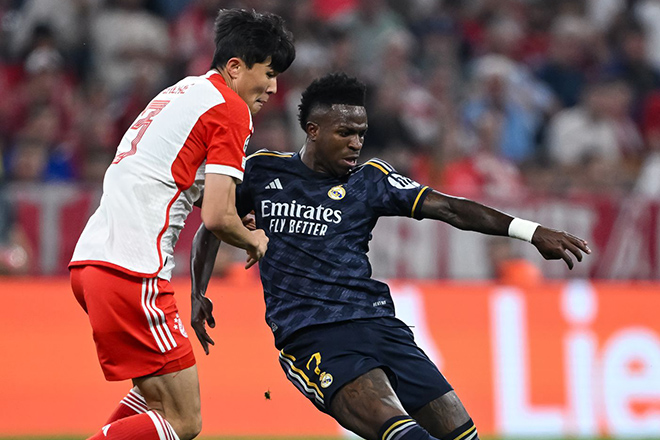In the 1970s and 1980s, Iraqi football was on a high. The Arabic nation reached the 1986 World Cup as well as the Olympic Games thrice (Moscow 1980, Los Angeles 1984, and Seoul 1988). A relatively impressive campaign saw them qualify to the quarter-finals of the 1980 Olympic Games in Moscow after managing a resounding 3-0 win over Costa Rica followed by two draws against Finland and Yugoslavia. Iraq's success in that particular tournament was then cut short by a 4-0 defeat to East Germany.
All the same, the Iraqis went on to win the 1982 Asian Games as well as the 1985 Pan Arab Games despite fielding the team with second-choice players.
Adding to their success in the 70s and 80s were four Arab Nations Cup and three Gulf Cup of Nations trophies, as well as a fourth place finish in the 1976 AFC Asian Cup.
But Iraq's flourishing history of football soon endured the effects of politics, despotism and torture.
After Saddam Hussein took charge of the country, he put his son, Uday Hussein in care of the Iraqi Olympic Committee and of Iraq's national team of football.
The players' freedom turned into fright and nightmare because of the pressure caused under Uday Hussein's leadership.
Several 'motivational' methods were created: Missing practices was worth going to prison, missing penalties, open goals, or conceding own goals would see the specific player have his feet whipped with thorns. Defeats were worth baths in raw sewage or flogging with electric cables and players were threatened to have their legs cut off.
This imposed 'culture' on Iraqi's football led Fifa to banning the country from the AFC and from most Arab tournaments after the Gulf War. This law also saw Iraq's national team of football, in 1996, fall unto the 139th place in the world - their worst ever FIFA ranking. The Lions of Mesopotamia were finally welcomed back by FIFA in the 21st century.
War broke out in 2002 in Iraq but this didn't prevent the country from playing in international games and having good results. Saddam Hussein's lack of power seemed to have brought back some sunshine in Iraq's football. They Lions of Mesopotamia went all the way to become quarter-finalists in the 2001 and 2004 AFC Asian Cup like back in 1996. They also qualified for the 2004 Summer Olympics in Greece where they beat Portugal 4-2 in their opening game as they marched on to the next round where they defeated Australia by a single goal to nil. Iraq unfortunately lost 3-1 to Paraguay in the semis and had to play in the third place final where they again lost 1-0 this, time to the Azzurri of Italy.
Iraq received some consolation for these defeats by being awarded the FIFA Fair Play Award and then the 2004 AFC team of the year award. Success followed up with Iraq winning the Gold medal in the West Asian Games in 2005 and the silver medal one year later at the 2006 Olympic Asian Games. The Lions of Mesopotamia also clinched the 2007 AFC Asian Cup in style, beating Saudi Arabia 1-0 in the final thanks to a superb header from their captain Younis Mahmoud. The Iraqi national team had defeated the sorrows persisting at home to triumph over the ashes of war.
This unforgettable and adventurous triumph eventually offered the squad three Team of the Year awards (the 2007 AFC Team of the Year award, Al-Ahram's 2007 Arab Team of the Year award and World Soccer Magazine's 2007 World team of the year award). Iraq were also nominees in the Prince of Asturias Award.
But then came a temporary suspension by FIFA on May 26, 2008 after the Iraqi government decided to break up the country's national sports federations. FIFA then took off the ban three days later as Iraq's government overturned their decision.
One of Iraq's difficulties as always been the home factor; the country used to play their home games on neutral ground in the 80s while in 2003, war issues forced the team to play elsewhere like in Jordan, in Syria, in Qatar or in the UAE. The irony here is that Iraq enjoyed a lot of success in the 80s, despite suffering from the home factor. In 2002, meanwhile, Iraq managed to play most of their games in Baghdad in the Al Shaab Stadium as they were aiming to reach the World Cup and ironically, they failed to qualify for Korea-Japan 2002.
How Iraq qualified to the 2009 Confederations Cup in South Africa.
The Lions of Mesopotamia's triumph in the 2007 AFC Asian Cup gave the country automatic qualification to the Confederations Cup tournament that starts in mid-June.
Iraq - who play in this competition for the first time ever - may be considered by many as outsiders, but their particularly illustrious history on every front might go on well when they play in South Africa.
The Iraqis' dream of reaching the 2010 World Cup finals is well dead and buried after they disappointedly failed to reach Asia's final round of qualification for the World Cup in South Africa. The Confederations Cup therefore comes up as Iraq's sole consolation on the International stage as at now, and they'll surely take the tournament very seriously so as to brush away the misery of crushing out so early from the finals of the 2010 World Cup.
About Iraqi's coach
Expectations on the 'Miracle Worker' are undoubtedly high. Velibor 'Bora' Milutinovic is the only man on the planet to have taking five different teams to the World Cup finals. The 64-year-old managed Mexico in 1986, Costa Rica in 1990, the United States in 1994, Nigeria in 1998, and China in 2002. Bora missed the opportunity to try his luck with Iraq as he was only appointed on April 8, this year.
All the same, the experienced Serbian-born coach holds the task of transforming 'outsiders' Iraq into the tournament's surprise package.
Bora will certainly stick to the team's front line composed of Iraq's inspirational captain Younis Mahmoud and Emad Mohammed if these two are made available by the time the competition takes place. Generally, the coach's task might be to input some lacking motivation and confidence in the Iraqi squad who all the same possess some impressive individual talent.
Key and Star Players
Younis Mahmoud is definitely the heart of the Iraqi national football team. The former Asian Young Footballer of the Year winner has matured from a hot-tempered and disliked player to a patriotic hero.
The prolific goal-scorer has the ability to score in almost every tournament he enters, with his header in the AFC Asian Cup final certainly being his most important goal.
Younis Mahmoud's presence in the squad as a captain and striker might inspire Iraq to an impressive first-time appearance in this year's Confederations Cup competition. Pairing upfront with Emad Mohammed could mean fire against the opponents' defense.
Bassim Abbas Kati is a key player in the team. The 5 ft 4 inches defender holds the task of performing as usual as Iraq's rock in defense. Will he succeed in holding off the likes of Fernando Torres and David Villa?





























